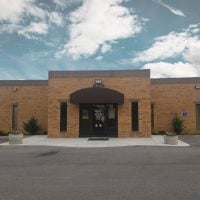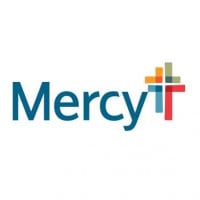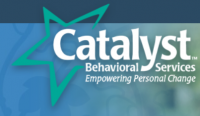Gateway to Prevention and Recovery
Drug Rehab Center in Stillwater, Oklahoma
- Substance Abuse
- Opioid Addiction
- Drug Addiction
- Alcoholism
The Gateway to Prevention and Recovery Health Center provides an individualized drug rehab program that utilizes evidence-based therapies, holistic activities and health insurance for those seeking sobriety.
Multiple patients have reported Gateway to Prevention and Recovery as permanently closed.
Research other rehabs in Stillwater, Oklahoma, or get help finding an open facility.
Our experts will find you an alternative facility.
(888) 674-0062 24/7 Free, Confidential, Expert HotlineAbout Gateway to Prevention and Recovery in Oklahoma
Gateway to Prevention and Recovery in Stillwater, Oklahoma is an Addiction Treatment Facility that specializes in helping individuals overcome alcoholism, opioid addiction, substance abuse, and drug addiction. With a focus on providing comprehensive care and support, Gateway to Prevention and Recovery offers a range of treatment options to cater to individual needs. They understand that everyone's journey to sobriety is unique, and their team of professionals is dedicated to providing personalized treatment plans to ensure the best chance of success. The facility accepts private health insurance, making quality addiction treatment more accessible to those seeking help.
At Gateway to Prevention and Recovery, individuals struggling with addiction can find a variety of services and treatment methods to aid in their recovery journey. They offer drug rehab programs that provide a structured environment for individuals to detox and begin their path towards sobriety. For those seeking a more flexible approach, their intensive outpatient programs provide comprehensive treatment while allowing individuals to continue with their daily responsibilities. Additionally, their outpatient levels of care offer ongoing support and therapy sessions to help individuals maintain their sobriety long-term. Gateway to Prevention and Recovery is committed to providing evidence-based treatment methods, including individual counseling, group therapy, educational sessions, and relapse prevention strategies. By addressing the physical, emotional, and psychological aspects of addiction, they strive to provide individuals with the tools and support needed to achieve lasting recovery.
Genders
Ages
Modality
Additional
Conditions and Issues Treated
Substance abuse is the excessive use of any drug. This includes alcohol, medications, and illegal drugs. Substance abuse is treated with a combination of physical and mental treatments. Patients detox and follow up with therapies that target the underlying cause of the addiction. Substance abuse is a severe problem that can be successfully treated with a variety of therapies. Gateway to Prevention and Recovery treatment uses a combination of therapies along with other resources to overcome substance abuse.
Opioid addiction treatment should be done in a medically supervised drug rehab. While taking opioids, users will typically use other substances to enhance the effects of opioids or to reduce the adverse effects of opioid use. Opioid addiction treatment will include detoxification and drug rehab counseling to help both the user and their loved ones learn how to live a successful sober lifestyle.
Treatments such as methadone, buprenorphine, and naltrexone are three medications that can help treat opioid addiction. These drugs work on the brain’s pleasure center and reduce cravings and the effects of illicit opioids such as heroin. These drugs can be either given orally or by injection. Individual drug rehab counseling sessions can be helpful to discuss any questions or concerns with the drug treatment program. This counseling will also help the user set goals for when they finish drug rehab.
Opioid addiction recovery is a long process. Many of the changes to the brain caused by opioid use cannot be undone, but with time and the proper treatment, a person can return to normal function. After detox, treatment will include drug rehab counseling and entering a halfway house or sober living community. Aftercare is critical to long-term recovery, as it helps the user avoid relapsing and entering back into drug rehab.
Levels of Care Offered
This center offers a variety of custom treatment tailored to individual recovery. Currently available are Drug Rehab, Intensive Outpatient, Outpatient, with additional therapies available as listed below.
Intensive outpatient treatment is a type of comprehensive addiction care. Unlike conventional residential treatment programs, the patients live at home during the recovery process. This means that one can continue working and caring for their families. These also allow people to keep pursuing their studies while also working on their sobriety.
Outpatient treatment can help one transition to normal life from the round-the-clock supervision and treatment available during inpatient treatment. It is an excellent tool to ensure long-term recovery. However, it is essential to note that intensive outpatient treatment in itself does not remove patients from the real-world setting. This means there’s always a higher risk of coming across environmental triggers. To further prevent relapse, an outpatient treatment center should be able to provide ongoing support services.
Once the patient is enrolled in an intensive outpatient treatment program, they will be expected to attend therapy and group meetings daily for a stipulated period. The frequency and duration of each session will depend on the patient’s needs and level of addiction. This can help curb the habit and deal with underlying issues that led to it. Most of these professional treatments are designed to allow patients to structure their daily schedules in a way that is conducive to recovery.
“Outpatient treatment is ideal for those who have a lower intensity addiction. It’s also suitable for those with a supportive environment and those on a tight budget.
Outpatient treatment can be considered the lowest intensity level of addiction treatment. It is ideal for early phase addiction or lower intensity addictions. It may involve weekly sessions instead of daily. Peer group support, 12-step programs, and individual counseling may still be used and anti-addiction medication.
Therapies & Programs
Group therapy is held in a safe, controlled setting where patients can feel comfortable sharing their struggles and gaining perspective through shared conversations. It takes place in a group rather than one on one to prevent feelings of isolation or being unique in their situation while creating an environment for addicts at Gateway to Prevention and Recovery to develop fellowship, accountability, and support. Group therapy is an important tool in recovery that prevents cravings that prompt a return to active addiction.
This type of therapy involves the use of a variety of therapeutic techniques to help addicts recover from past traumas that might have triggered their substance abuse. During these sessions, therapists will work with the addict to address painful memories and learn how to cope effectively with stressors as they arise.
During these types of sessions, therapists will typically focus on three main goals:
- Identifying and expressing painful emotions associated with past traumas.
- Reducing the effects of stress on an addict’s life by developing more effective coping mechanisms.
- Developing healthy ways of thinking about stressful situations that can help addicts avoid substance abuse issues in the future.
This type of therapy is typically used in conjunction with other types of addiction treatment services. By identifying and dealing with the root cause of addiction, most addicts can overcome their cravings and prevent relapse once they leave rehab.
Many different types of addiction treatment services exist to help addicts safely get sober, but it’s important for recovering individuals to find a therapist or support group that will help them address the root cause of their addiction.
Payment Options Accepted
For specific insurance or payment methods please contact us.
Is your insurance accepted?
Ask an expert, call (888) 674-0062
Additional Details
Specifics, location, and helpful extra information.
Stillwater, Oklahoma 74074 Phone Number(405) 372-0198 Meta DetailsUpdated November 25, 2023
Staff Verified
Gateway to Prevention and Recovery Patient Reviews
There are no reviews yet. Be the first one to write one.
Stillwater, Oklahoma Addiction Information
The state of Oklahoma ranks second in the United States of America for residents with substance abuse disorders. Since 2004 the state has continuously exceeded the national standard of substance abuse cases. The state spent more than $37 million to combat addiction by investing in quality drug and alcohol addiction treatment in 2017. An estimated 600 to 800 people are on waiting lists each day for inpatient addiction treatment.
The drug addiction problem in Stillwater, Oklahoma, is relatively small but growing. According to recent statistics, only about 200 people were admitted to rehab for drug addiction in Stillwater, Oklahoma, in 2016. However, this number is steadily increasing, and the problem will only worsen if something isn't done soon. There are a variety of treatment approaches available, including cognitive-behavioral therapy, 12-step programs, and holistic therapies.
Treatment in Nearby Cities
- Tecumseh, OK (59.6 mi.)
- Konawa, OK (81.6 mi.)
- Vinita, OK (112.1 mi.)
- Tonkawa, OK (41.5 mi.)
- Fairview, OK (80.1 mi.)
Centers near Gateway to Prevention and Recovery




The facility name, logo and brand are the property and registered trademarks of Gateway to Prevention and Recovery, and are being used for identification and informational purposes only. Use of these names, logos and brands shall not imply endorsement. RehabNow.org is not affiliated with or sponsored by Gateway to Prevention and Recovery.


